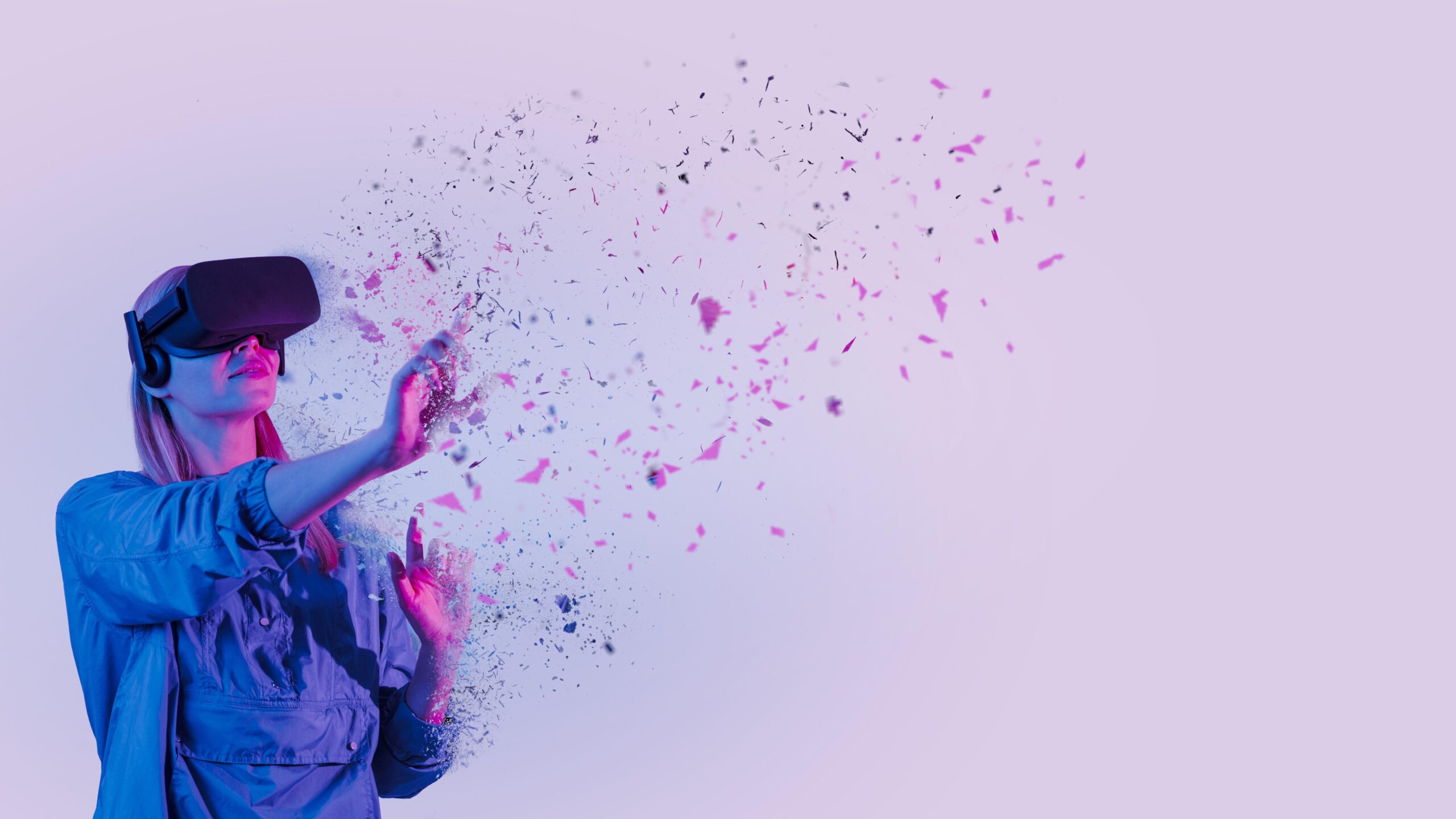
"VICTOR"
VR training protocol for early childhood professionals

The name VICTOR carries a mission that:-
We use VR professional training protocol to enhance Infancy Care service and safety. At last, a Training and Operation Recommendation to the industry and workforce.
The proposed will develop a staff training protocol which has –
- A set of 8 scenarios with the use of Virtual Reality (VR) which focus on daily handling and significant development-facilitation skills. Apart from typical scenarios and at-risk situations such as preterm babies, cerebral palsy, structural impairment, etc. will be developed
- A recommendation and guideline on using hybrid mode (VR and face-to-face consultation) to provide staff training
With the VR training protocol, early childhood professionals can simulate and practice skills in a more-like-real-life scenarios before being competent in handling infants in CCC and EETC. During the VR training, results of each user will be collected to ensure they have passed the training. If results show that participants are not on par or have difficulties at certain scenes, stages, or types of “infants”, face-to-face consultation from Allied Health Professionals (Physiotherapist, Occupational Therapist, Speech Therapist, and/or Nurse) will be provided.
The VR scenarios can be also used as continuous professional development for related professionals to refresh and revisit different scenarios and cases from time to time.


The objectives of this proposed project are:
1) to improve the early childhood workforce professionalism of 0-2-year-old infants
2) to reduce risk and increase the safety of handling high-risk infants in preschool settings, and
3) to enhance the learning efficacy of the training professionals via the Virtual Reality protocol.


A group of allied health professionals including PT, OT, ST, EP Nurses, contributed their knowledge on various child developmental aspects (gross motor, fine motor, communication, daily care handling) to outline the design for content development. VR developers designed the games accordingly.
The video below is a demonstration of a developer playing the VR game which allows the user to learn how to handle a baby.

100 childcare workers with less than 1 year experience of handling 0-24-month-old infants are recruited.

Crucial skills will be taught through 8 webinars and assisted by videos and digital handouts. The use of VR in their upcoming learning will be introduced and demonstrated during the webinars.
Each participant will then have a set of VR glasses with the scenarios and games embedded. Participants will finish 5 scenarios, including both “Practice Stage” and “Challenge Stage” (scenarios with SEN signs and symptoms). A virtual tutor will assist participants by prompting a message or giving hints if they make mistakes.
Data will be sent to the corresponding allied health professionals if results of any participants show they are under par even with the help from the Virtual Tutor. A face-to-face consultation will be arranged for real-time coaching. The corresponding VR tools will be employed again after the coaching session to ensure participants’ performance is on par.
A pre-test, post-test and self-rated evaluation will be completed by participants after the end of the training of the first 5 scenarios.
The video below shows a participant using the VR tools to play the games.
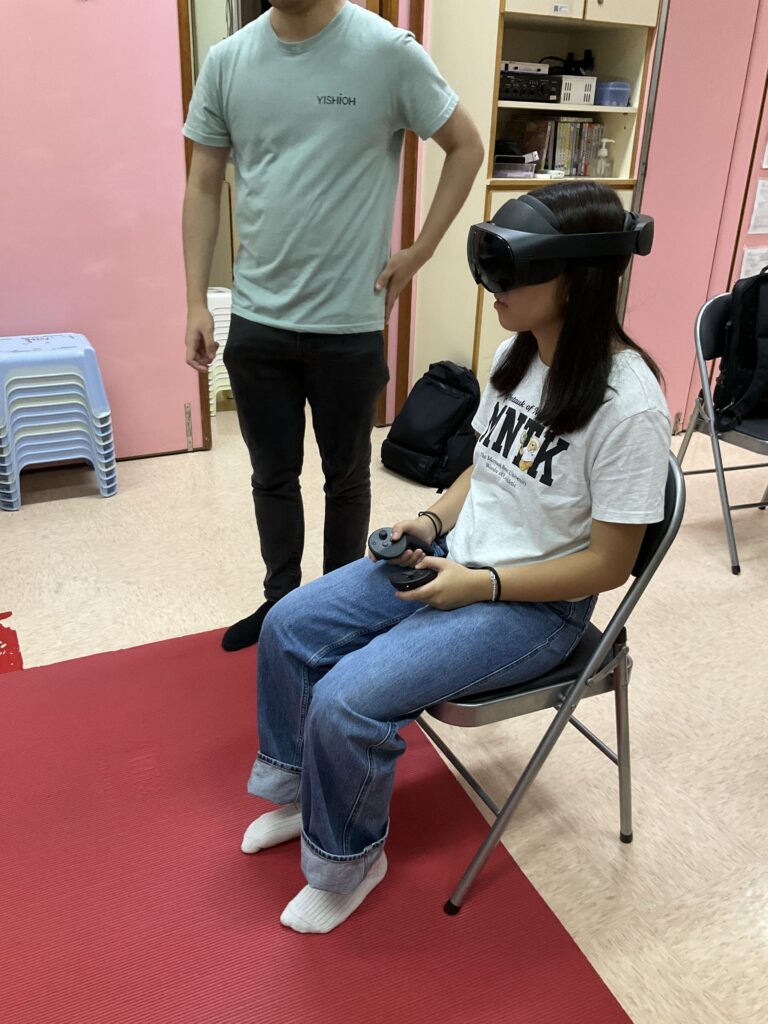
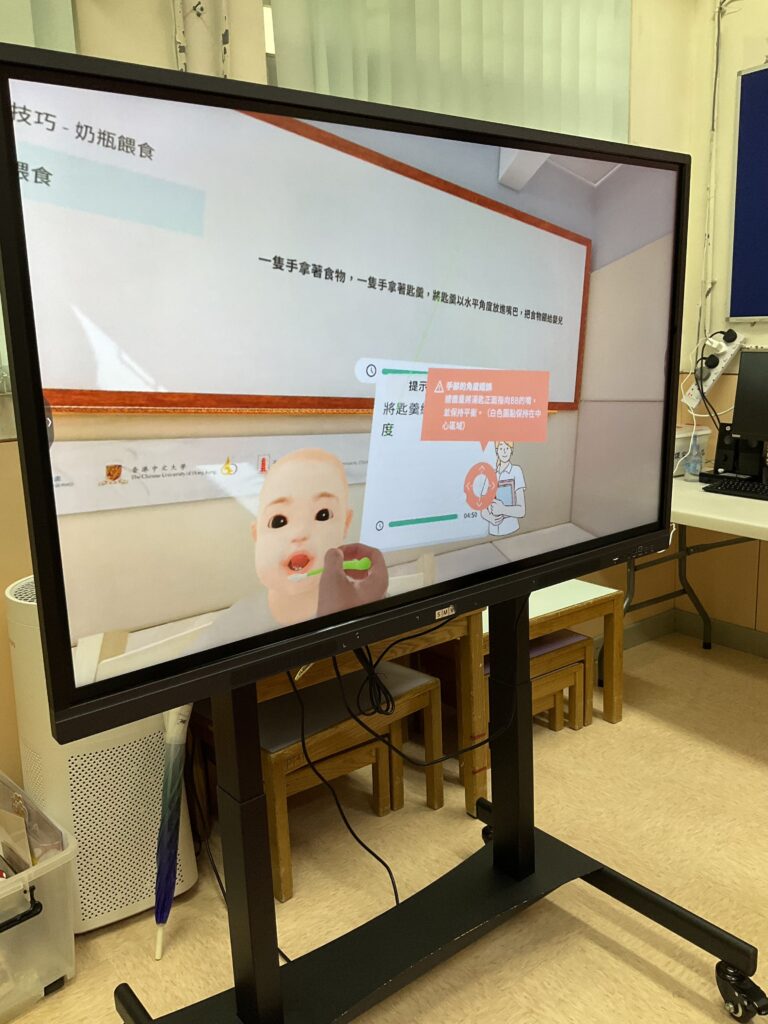
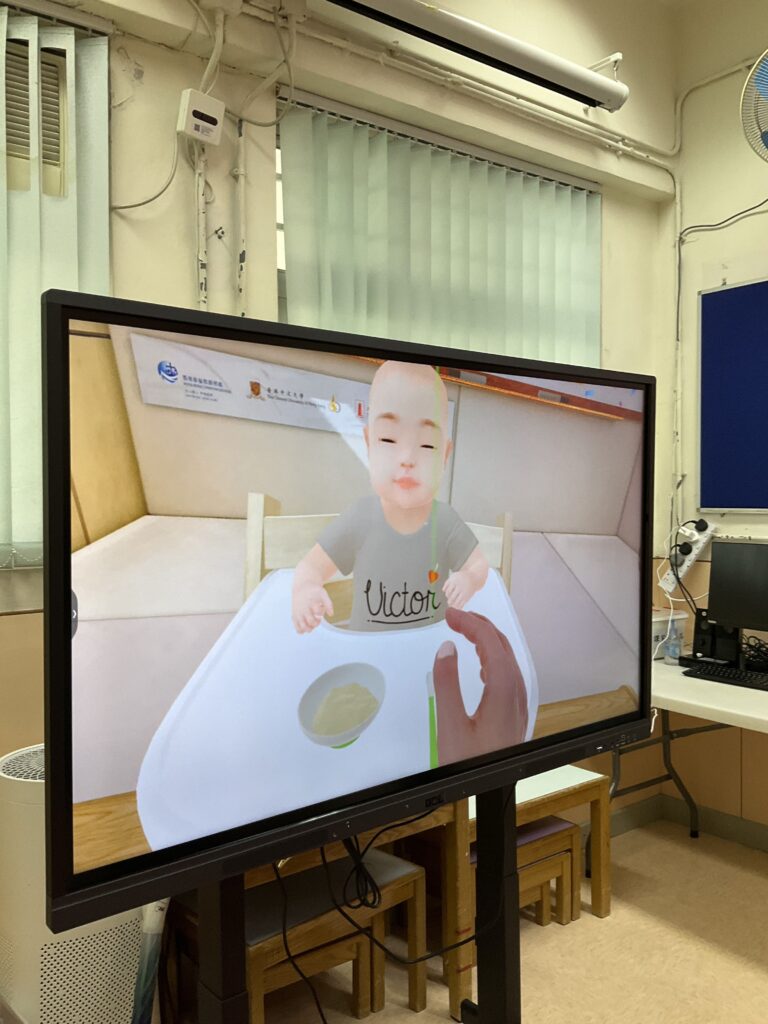
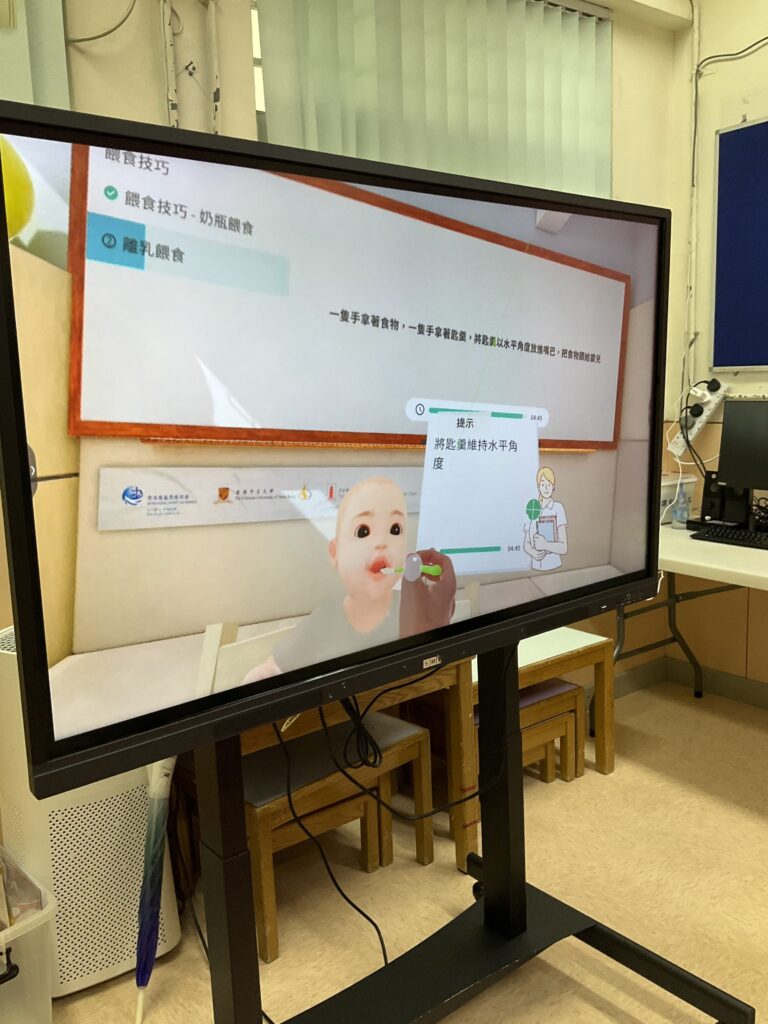
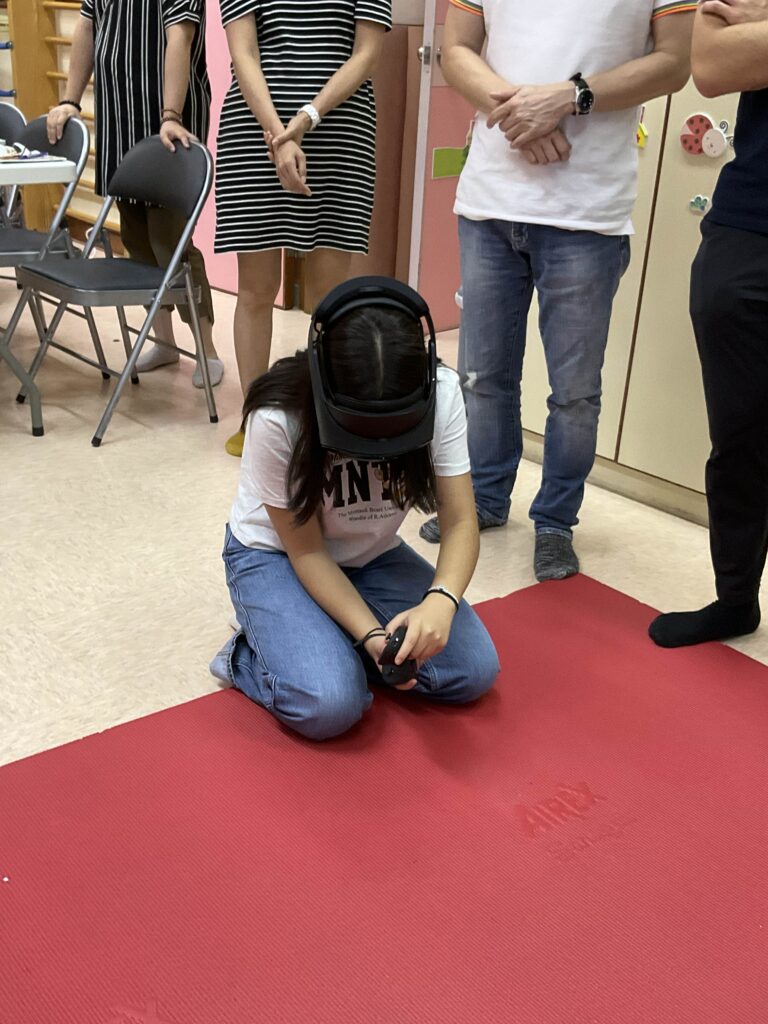
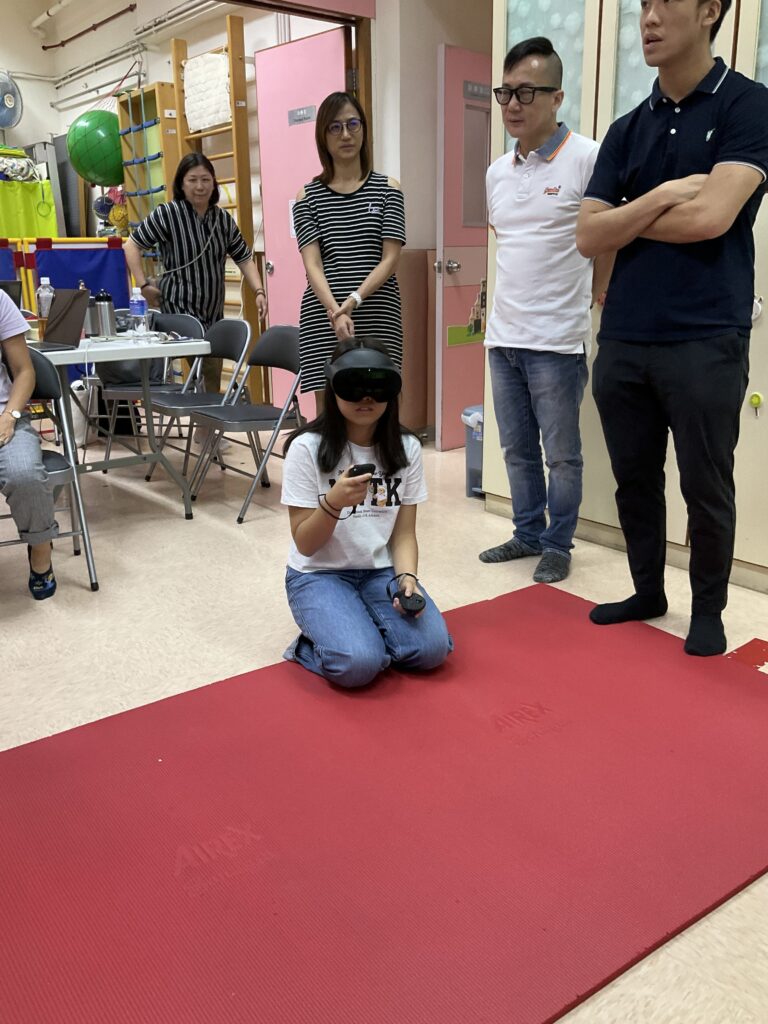
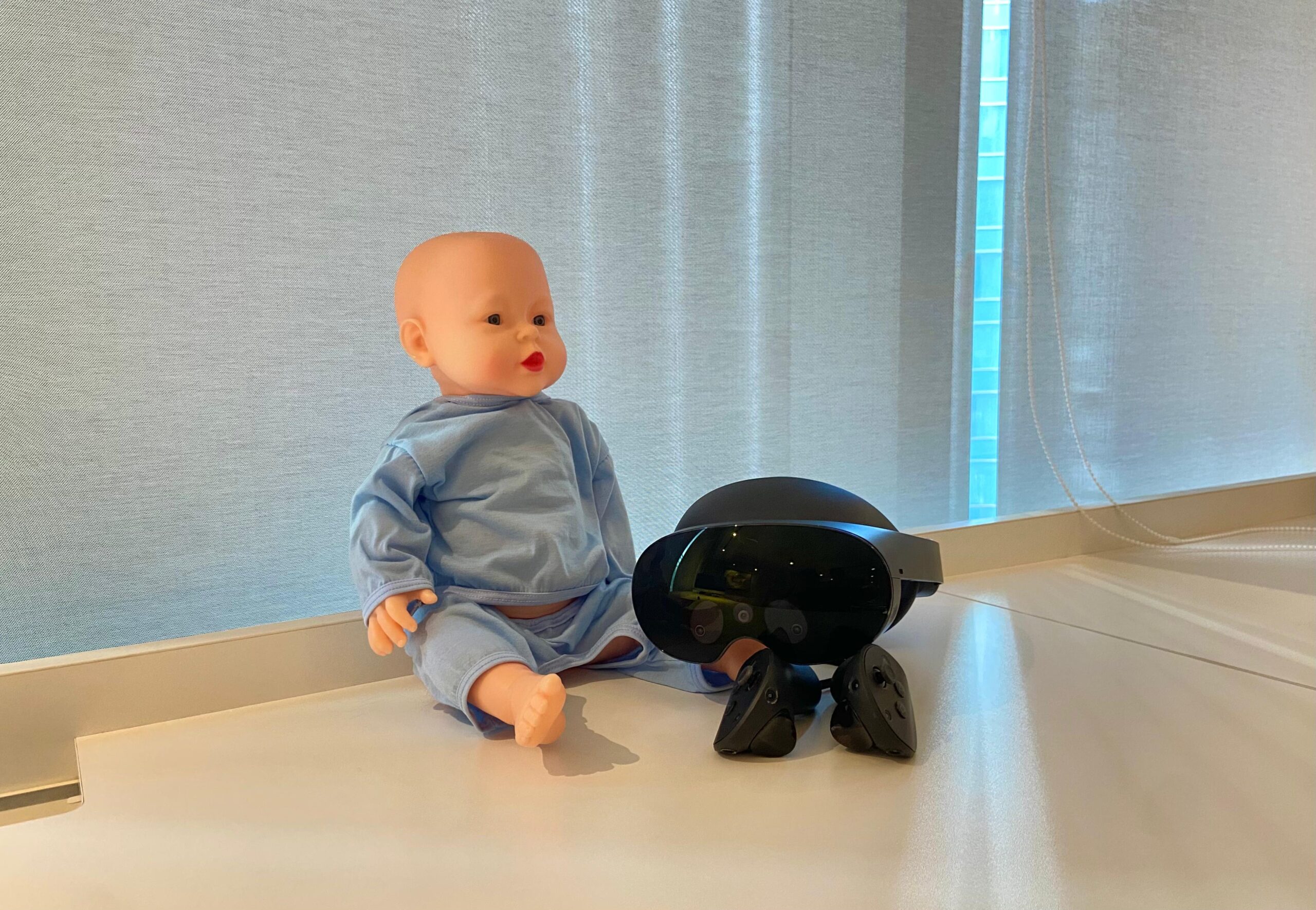

Data collected will be analyzed by the CUHK team. Any insights on the VR tools or the training protocol will be raised and refined.

4 sessions of VICTOR experience sharing will be arranged with different topics/content:
- 1 online session will be given to NGO or operators’ management team, so as to share the experience of using innovative technology in staff training.
- 1 online session will be given to allied health professionals who will supervise special child care workers closely. Common weaknesses, errors, or points-to-notice generated from results of the data and observation from face-to-face consultation sessions will be disseminated and shared. The session aims to increase the awareness of those “high-risk-of-error” areas.
2 face-to-face sessions will be given to frontline professionals. Speakers will share on the “high-risk-of-error” aspects, and aim to strengthen their knowledge and raise their awareness of concerns in those areas identified.

VICTOR will allow early childhood professionals to have hands-on training with various possible scenarios and develop their competence before they engage in their work in rea life. With the innovative use of VR, users are allowed to make mistakes, reflect and rectify their mistakes and try again. The use of VR training protocol will minimize chances of making mistakes, which could cause serious and critical consequences.
The proposed innovation would transform existing training provided for early childhood workers, which are provided mainly on lectures and books. The VR training protocol will allow workers to engage and immerse into a real-life environment and scenarios, and thus make proper decisions. The proposed innovation also provides an assessment mechanism which will determine whether workers are competent in the areas or if face-to-face consultation and coaching is needed.
The proposed innovation can also be a continuous training development programme for workers to refresh, renew and review their knowledge from time to time.

